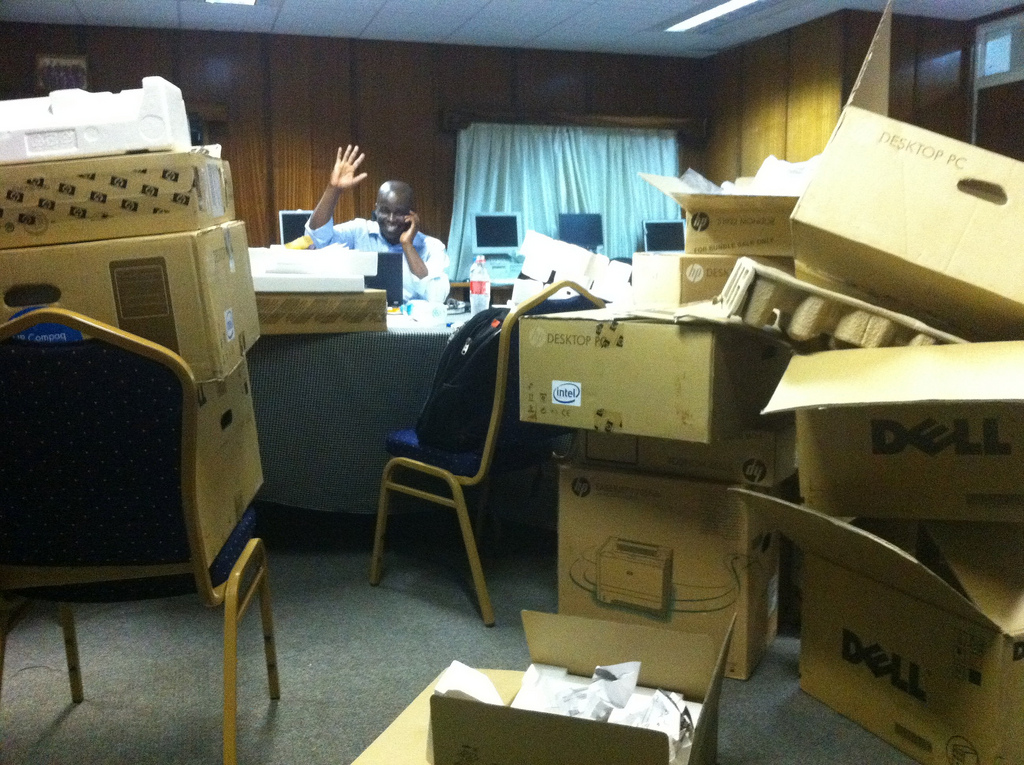Developing a Datacenter: Zambia Edition

Zambia's got a big election coming up. All of the highly partisan local papers are in agreement: it's going to be a blowout for their guy. (The former poll was allegedly released under the ausipices of a fictitious university.)
The lack of any objective facts means that there is little trust in the process - and therefore the outcomes. Everyone's primed to believe that when their guy loses it's because the other side cheated. I'm here assisting our the Civil Society Elections Coalition, a group that will be monitoring the vote to provide an independent check on the Elections Commission of Zambia (local flavor: they always use "zed" when spelling things out, so that group would be the ee-cee-zed.)
If there's shenanigans we hope to spot and call it out, but monitoring is really important when the race is basically clean as well. An independant voice confirming the results can make the bitter pill of defeat a bit easier to swallow. There's definitely some risk of violence in Zambia; I'm told folks are stocking up on goods "you know, in case."
I've spent the bulk of the last two days getting our data center up and running. We're based out of the Taj Pamodzi, a really nice hotel in Lusaka. Actually, we're in the Club Lounge, which was quite clearly a casino once upon a time. Lots of mirrors - I promise I'll share the pictures soon. Sometimes the biggest part of our tech interventions is largely simple logistics such as those associated with spinning up a computer lab in a short while. We're fortunate to have Francis, a great local IT guy, working with us.The most annoying challenges are sometimes the simple questions - where can we obtain computers? A 24-port Ethernet switch? A case of power strips?
There's a lot of things to consider to make sure we can keep rolling no matter what. We've brought in a generator and put the server on a UPS; we're buying a couple GSM modems; I'm bringing a bunch of my own coffee. Since, unlike in Nigeria, all the info will come in over voice calls, we also have a rats' nest of cheapie cells and chargers. I'm truly astonished that the sophisticated tech that a cell phone embodies can now be bought for $15.
It did take an entire day, a dozen calls, and many failures before I could get my hands on some #^*%^ scotch tape.
After a couple late nights we've now set up a sizable room entirely ringed with computers. It's quite a site to behold. They ain't fancy; we really don't care about the systems' specs. Some of them are Compaqs - remember those?
These rickity machines have to do one and only one thing: run web browsers. Not just any web browsers, though. Our crackerjack consultant Tim Akinbo has taken his Nigerian election software and totally redone it as an HTML5 app, and it only really works well under Chrome or the very most recent Firefox. That software is humming away in on an Ubuntu box in our high security janitorial closet server room next door.
Today's simulation day - our data clerks are hammering the phones, testing the system, and practicing with the monitors across the country. We're doing great, hitting as close to 100% participation as one can get without that anxious feeling that perhaps the database has filled them all in for you.
